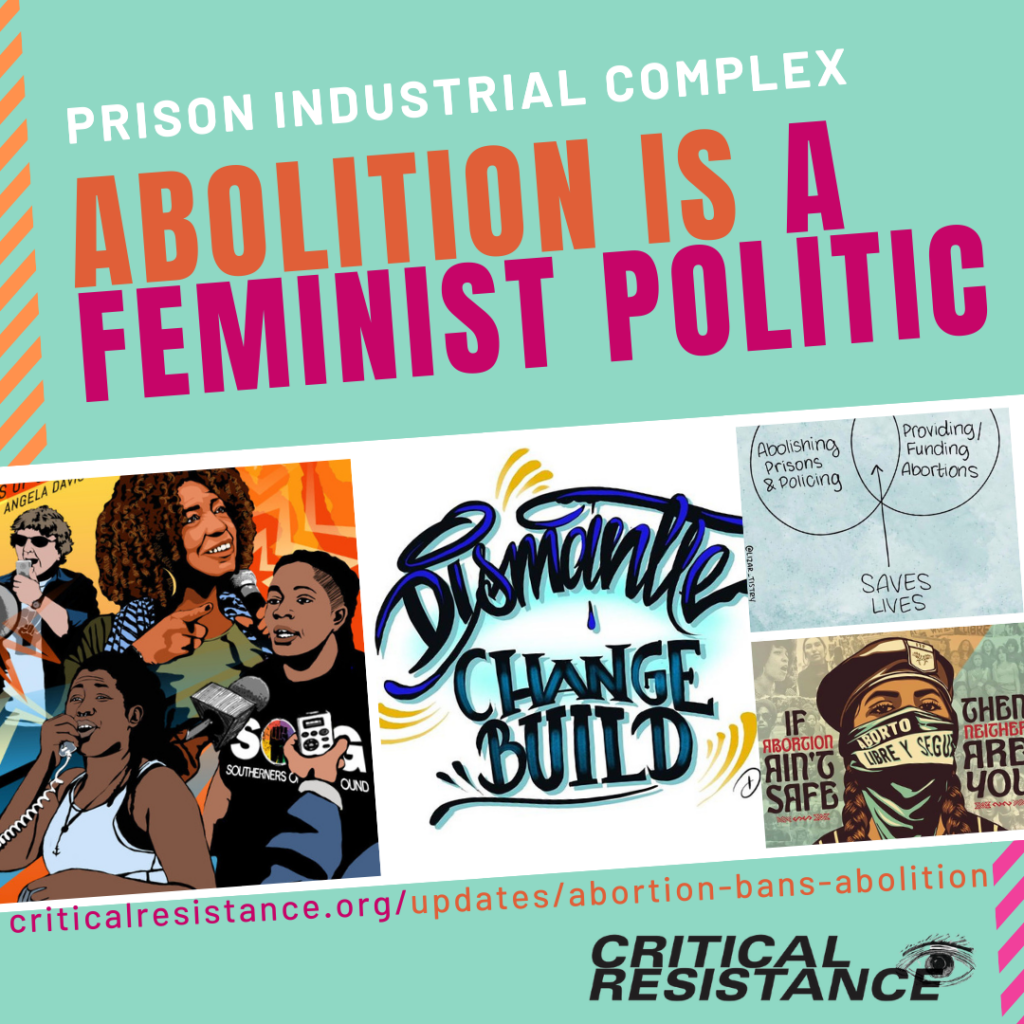This international women’s day, we hold up the light of abolition feminism to make sense of this moment and continue forging a path forward.

As the distance between the haves and have nots continues to grow, the fight over how neoliberalism will be managed continues. The forces on the far-right were not deterred by the US elections in November 2022 and continue to gather forces and grow power. The GOP aims for a consolidation of federal governance with Donald Trump back in the running. Another strong contender, Governor DeSantis of Florida – is making rounds nationally, courting the presidential nomination. Given both of their histories with how they’ve approached the gender-oppressed people they have governed, the writing is on the wall for the far right’s plan for an international roll back of gains made over the last half century. We know that the assault on gender oppressed people is meant to remove us from access to power – both over our bodies as well as to the levers of power within the political economy.
This is also not a US specific phenomenon. We can see the deepening of patriarchal violence in repressive countries- from the jailing of women in Iran for being in public without hijab, the repression of women in Afghanistan to access education and public life, the attacks against trans people in the UK and the targeting of indigenous women in countries like El Salvador for defending their land and families and on and on.
The prison industrial complex (PIC) plays a central role in repressing gender-oppressed groups – both for our assertions of self determination and then as punishment for resisting domination. A major turning point in the US came last year, with the repeal of Roe v. Wade. While the historic court ruling in favor of abortion access did have its limitations, it offered some protection to women and those who can bear children – access to reproductive health without criminalization. Since the most recent court ruling, we’ve seen conservative states launch legislation criminalizing access to reproductive health spreading across the country. Mirroring this is legislation that curtails the ability of trans people to have access to medical care and public space. This effectively criminalizes the trans community’s ability to reproduce and removes trans people from public life. This assault on collective bodily autonomy and community self determination can be seen crystalized in the child custody case currently being heard at the Supreme Court- where there is a threat of further denying Indigenous sovereignty through an attack on the Indian Child Welfare Act.
 We know that at times like these, it is important to turn to the feminist roots of our politic to anchor us in how to move forward – grounding in the historic Incite -CR statement and the recent work of Angela Davis, Gina Dent, Beth Ritchie, and Erica Meiners in Abolition Feminism Now. At this particular moment, CR wants to recognize and uplift the ongoing fights to secure access to reproductive health legislation at the state level and locally unfolding across the country. Where there has been more repressive legislation passed, there are networks of support to get criminalized pregnant people and gender-oppressed people the care that they deserve, as there are also fights at the state level against legislation that criminalizes access to care for trans youth and adults. Formations like the In our Names network and Vision Change Win are supporting women and trans people in emergency situations. Our comrades at CA Coalition for Women Prisoners (CCWP) in 2021 won a historic coalition organizing victory winning reparations for forced sterilizations of imprisoned women in CA in 2021, and more recently launched the From Crisis to Care report with Human Impact Partners, detailing the state of women’s prisons in CA and actions that can be taken to stop the harms unfolding inside.
We know that at times like these, it is important to turn to the feminist roots of our politic to anchor us in how to move forward – grounding in the historic Incite -CR statement and the recent work of Angela Davis, Gina Dent, Beth Ritchie, and Erica Meiners in Abolition Feminism Now. At this particular moment, CR wants to recognize and uplift the ongoing fights to secure access to reproductive health legislation at the state level and locally unfolding across the country. Where there has been more repressive legislation passed, there are networks of support to get criminalized pregnant people and gender-oppressed people the care that they deserve, as there are also fights at the state level against legislation that criminalizes access to care for trans youth and adults. Formations like the In our Names network and Vision Change Win are supporting women and trans people in emergency situations. Our comrades at CA Coalition for Women Prisoners (CCWP) in 2021 won a historic coalition organizing victory winning reparations for forced sterilizations of imprisoned women in CA in 2021, and more recently launched the From Crisis to Care report with Human Impact Partners, detailing the state of women’s prisons in CA and actions that can be taken to stop the harms unfolding inside.
In the next issue of CR’s bilingual newspaper, The Abolitionist issue 39 on reproductive justice, printing in June 2023, we get even deeper into these fights and visions for freedom with authors including Diana Block and Moonlight Pulido (CCWP), Maria Thomas and Ash Williams (Interrupting Criminalization fellows), Rafa Kidvai (If When How), Erin Miles Cloud (Movement for Family Power), and more.
International Women’s day has the illustrious history of being a major spark that started the fire of global revolution. Here’s to PIC abolition’s inclusion in that history, and a call to continue stoking the fires of revolutionary change.
Onward,
Critical Resistance
